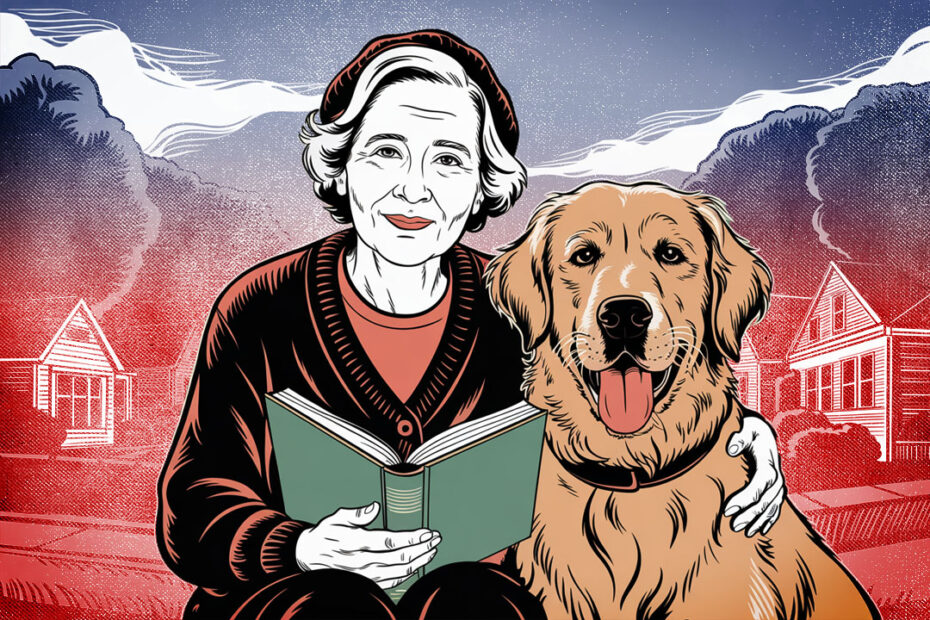By Judie Brown
The heart-wrenching story of a woman who recently chose to end the life of her pet really tugs at the heartstrings of any pet owner who has had the same experience. But when the subject is a human being who is confronting her last days of life, the tone changes dramatically.
For example, one woman, described as an influencer, chose to end her life after a battle with ovarian cancer. Anita Wright’s final message, released almost two months after her imposed death, told her fans that she was okay, even though by the time they saw the post, she was dead. Wright stated, “It’s a perfect thing for me. I didn’t want to suffer any longer and my girls didn’t want me to suffer and nor did my friends.”
We ask a serious question in a case like this: Why is taking your life on your terms, instead of trusting in the will of God, an acceptable thing in our culture today? Shouldn’t we be searching our souls to discern what is wrong with a self-absorbed, death-centered attitude instead of lionizing it?
The answer may be complicated, but one man sheds a great deal of light on this. His name is Dovie Eisner. He “was born with a rare genetic condition called nemaline myopathy. He requires a wheelchair and has a host of other health problems. Last year at one point, he stopped breathing, passed out on the street, and was taken to the emergency room.”
Despite his hardships, Dovie opposes New York’s efforts to make it legal to commit assisted suicide. He recently wrote, “If the Empire State joins the 10 states (and the nation’s capital) that have made assisted suicide legal, it will be adding killing to the options available in doctors’ toolkits. Given my own brushes with death over my 34 years—and those moments of staring into the suicidal abyss as a result of depression associated with my condition—I pray Empire State lawmakers take a step back, and rethink.”
Clearly the times are changing in far too many ways, and Dovie is a voice of reason amidst all those clamoring for the right to choose to take a life, whether we are talking about a defenseless preborn baby or a person who requires special care because of an existing condition.
Dovie’s concern about the proposed legislation in New York is well founded. The proposal defines terminal illness or condition as “an incurable and irreversible illness or condition that mas been medically confirmed and will, within reasonable medical judgment, produce death within six months.”
Like Dovie, we must all come to understand that the laws of man can be cruel and inhumane, while the laws of God are just and compassionate. Confronting a terminal condition that is likely to end in death should never be a reason to sanction killing. Death comes for each of us eventually.
But for some, the question is not about accepting the natural course of life, it is about alleged dignity in death. Saint John Paul II, who experienced his own suffering prior to his death, wrote in Evangelium Vitae:
Living to the Lord also means recognizing that suffering, while still an evil and a trial in itself, can always become a source of good. It becomes such if it is experienced for love and with love through sharing, by God’s gracious gift and one’s own personal and free choice, in the suffering of Christ Crucified. In this way, the person who lives his suffering in the Lord grows more fully conformed to him and more closely associated with his redemptive work on behalf of the Church and humanity.
No one looks forward to suffering or invites it into their life, but when it comes, every person has a decision to make. Does she welcome it knowing that Christ is by her side, or does she reject God and choose death on her terms?
Saint John Paul II wrote in Salvifici Doloris that “all those who suffer have been called once and for all to become sharers ‘in Christ’s sufferings,’ just as all have been called to ‘complete’ with their own suffering ‘what is lacking in Christ’s afflictions.’ At one and the same time Christ has taught man to do good by his suffering and to do good to those who suffer. In this double aspect he has completely revealed the meaning of suffering.”
Human beings are not pets; we are persons. We have free will and the ability to love God and others, in sickness and in health. Let us choose to live in God’s love and heed His laws regardless of our conditions.
